Civil & Environmental Engineering Newsletter: March 2023
Civil & Environmental Engineering Newsletter: March 2023
Message From the Chair
In this issue of our newsletter, I would like to highlight faculty achievements in the Department of Civil & Environmental Engineering. Our faculty are wholehearted in their efforts to improve society and the environment through engineering, and to share their knowledge with younger generations. The honors they have received are well deserved, and I am very proud to share news of them with you.
— Steven Wojtkiewicz, Professor/Chair of Civil & Environmental Engineering
Research Funded
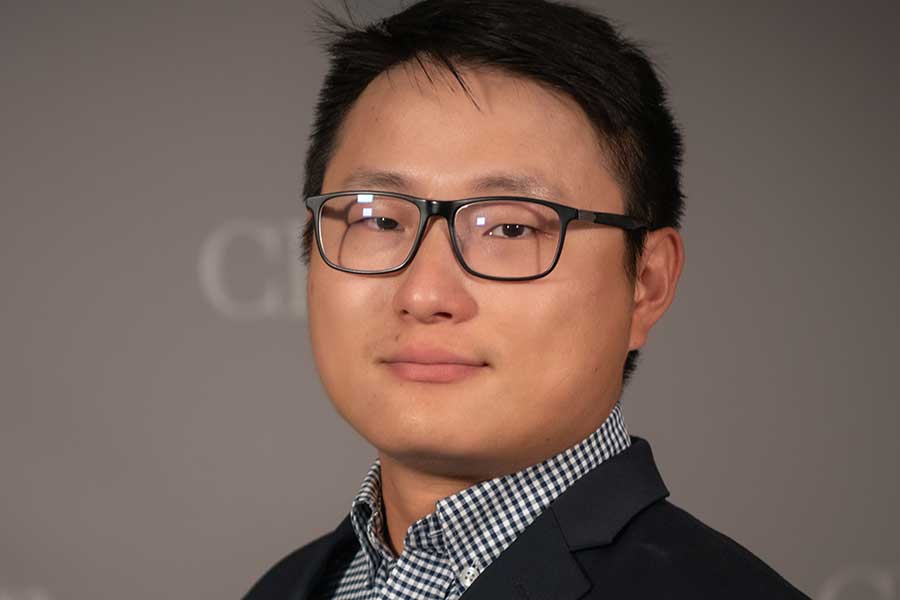
Professor Yang Yang is very busy. He recently received a three-year research grant from the U.S. Department of Energy’s National Alliance of Water Innovation to fund his work in dehalogenation of emerging contaminants. This is in addition to an NSF CAREER Award that will fund his research in treating and destroying PFAS solid wastes.
Rare Honor
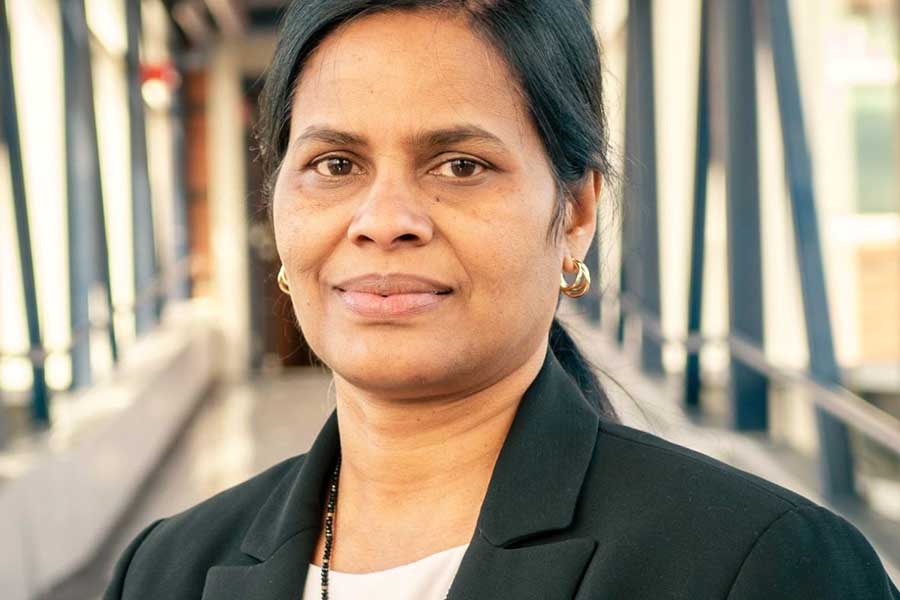
In keeping with the department’s goal of improving the world through sustainability and better environmental health, Professor Sulapha Peethamparan’s research focuses on sustainable concrete. She has contributed so much to the field, in fact, that she was elected a Fellow of the American Concrete Institute — an honor that less than 5% of members receive.
Concrete Award
Another faculty member to be recognized by the American Concrete Institute is Professor Robert Thomas, who received the Young Member Award for Professional Achievement. During his time as a member, Thomas has chaired committees, organized convention sessions and mentored students and young professionals, all while performing his own concrete research.
Quick Hits
Chemical & Biomolecular Engineering Newsletter: March 2023
Chemical & Biomolecular Engineering Newsletter: March 2023
Message From the Chair
Students and faculty in the Department of Chemical & Biomolecular Engineering make an impact in their fields of study. The articles we are sharing this month highlight their contributions, as well as the recognition they have received from industry and academia. Please enjoy reading more about their accomplishments.
— Elizabeth Podlaha-Murphy, Professor/Chair of Chemical & Biomolecular Engineering
Space Solutions
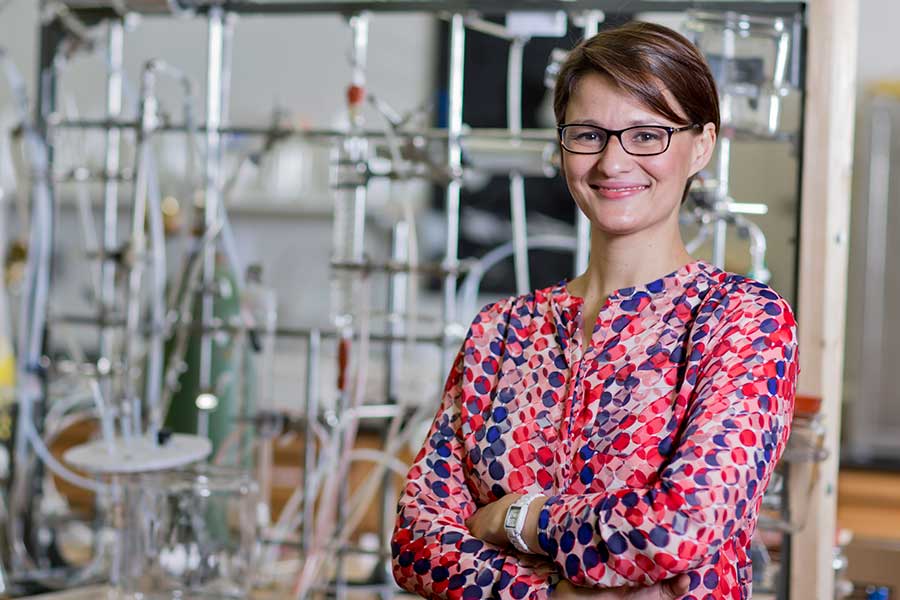
Blue Origin may be aiming for outer space, but it has its sights set on Clarkson. Professor Selma Mededovic Thagard was a recent recipient of one of its grants, which will fund her research on using non-thermal plasma to purify wastewater on space flights. In phase one of her project, she will develop several lab-scale plasma systems.
On the Scene
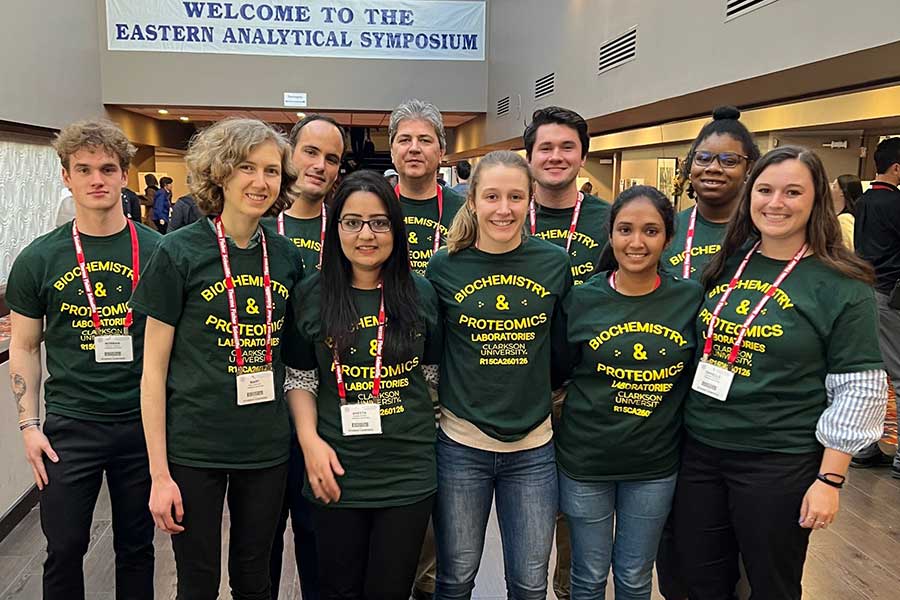
Chemical engineering major James Lowe ’23 got a taste of the national academia scene this past fall. He, along with other undergraduate and graduate students from Clarkson’s Biochemistry and Proteomics Laboratories, attended the Eastern Analytical Symposium — one of the largest chemistry conferences on the East Coast.
The Shape of Water
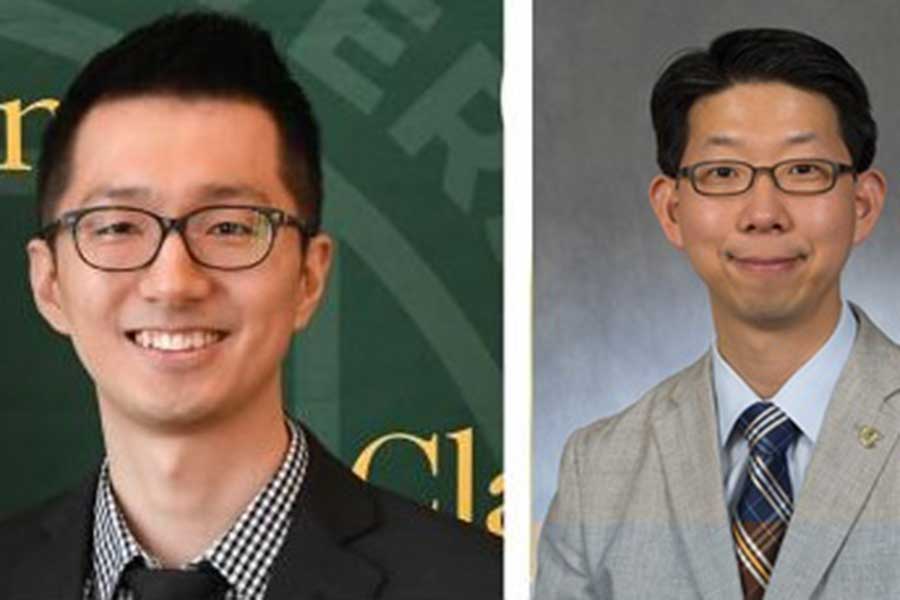
As the question of a plentiful water supply becomes increasingly pressing, Professor Taeyoung Kim is searching for a cost-effective and energy-efficient method for groundwater desalination. To support his endeavors, the Department of the Interior awarded him and his University of Cincinnati collaborator $250,000 for their research.
Center for Advanced Materials Processing Newsletter: March 2023
Center for Advanced Materials Processing Newsletter: March 2023
Message From the Director
I am excited to highlight in this issue of our newsletter a number of new opportunities for CAMP and our affiliates. Our researchers continue to develop advanced materials that solve complex environmental, energy and even astronautical problems. In addition, CAMP is supporting the development of a new facility that will contribute to improving the well-being of older members of the Northern New York community. I invite you to read more below.
— Devon Shipp, Director of CAMP, Professor of Chemistry & Biochemistry
Containing Contaminants
Heavy metal can be bad. And we don’t mean the music. We’re talking about the heavy metal that seeps into the environment and winds up in our water. In fact, it’s one of the leading causes of water pollution. Enter Clarkson researchers, who have determined how to 3D-print sustainable bio-based adsorbents that can remove toxic contaminants.
Space Solutions
Blue Origin may be aiming for outer space, but it has its sights set on Clarkson. Professor Selma Mededovic Thagard was a recent recipient of one of its grants, which will fund her research on using non-thermal plasma to purify wastewater on space flights. In phase one of her project, she will develop several lab-scale plasma systems.
Reading Recommendation
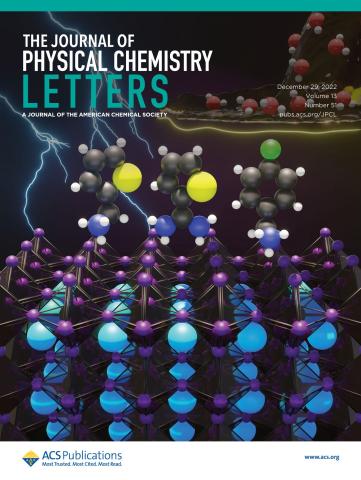
Here’s a recommendation for your reading list: the cover article in a recent issue of The Journal of Physical Chemistry Letters. Co-authored by Assistant Professor of Physics Dhara Trivedi, the article details the research of Trivedi and her team that centers on using 2D materials in solar energy harvesting devices.
